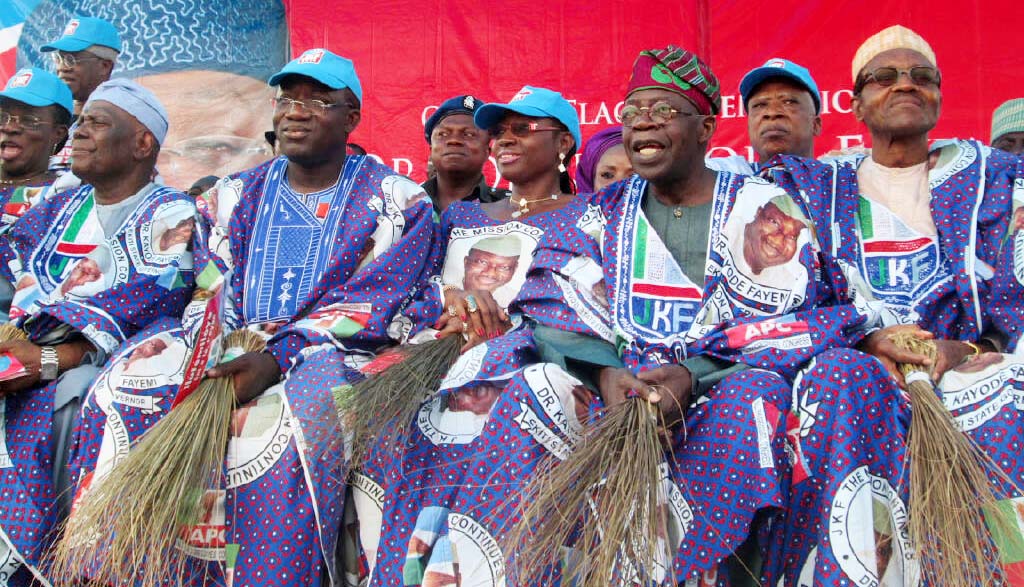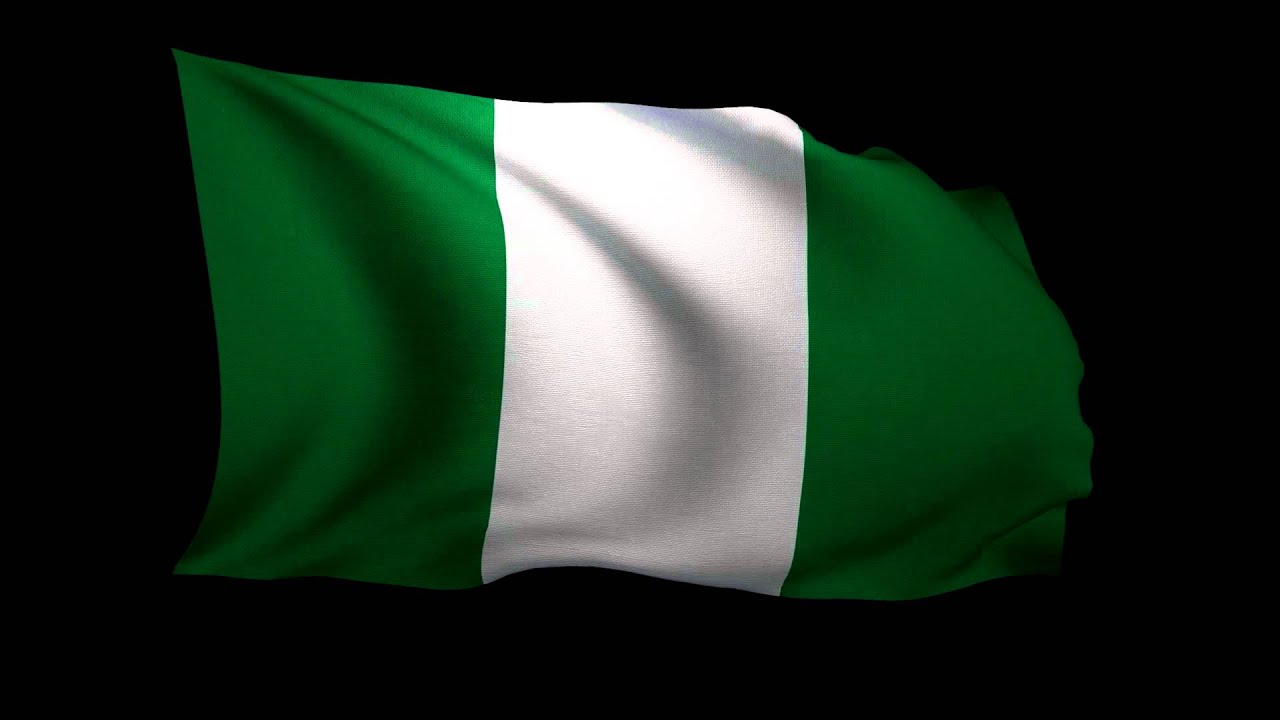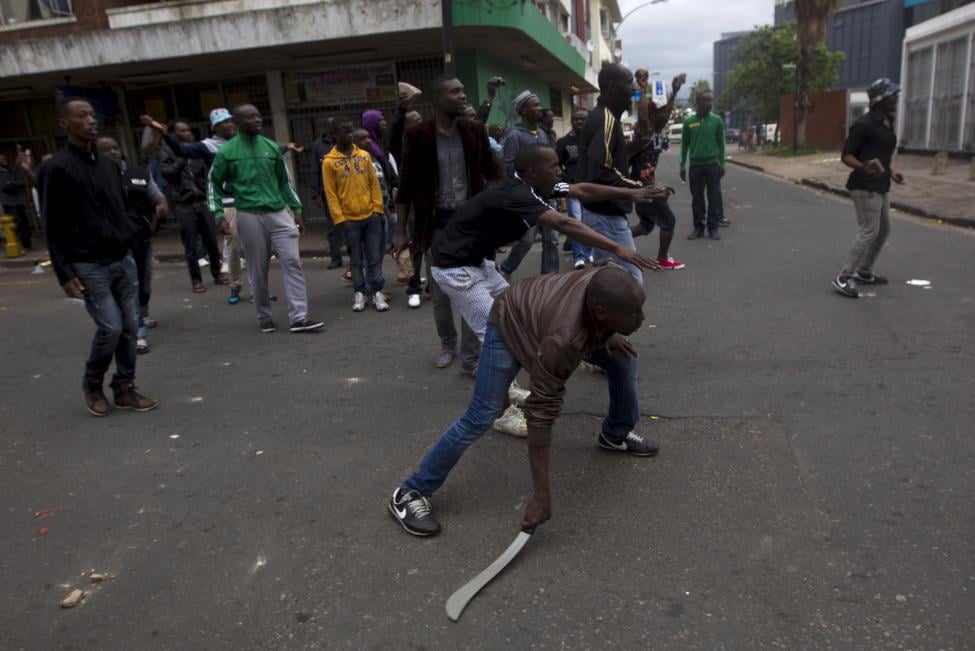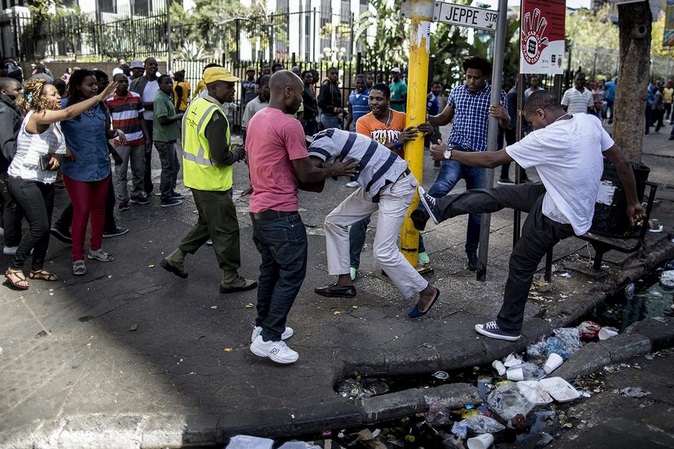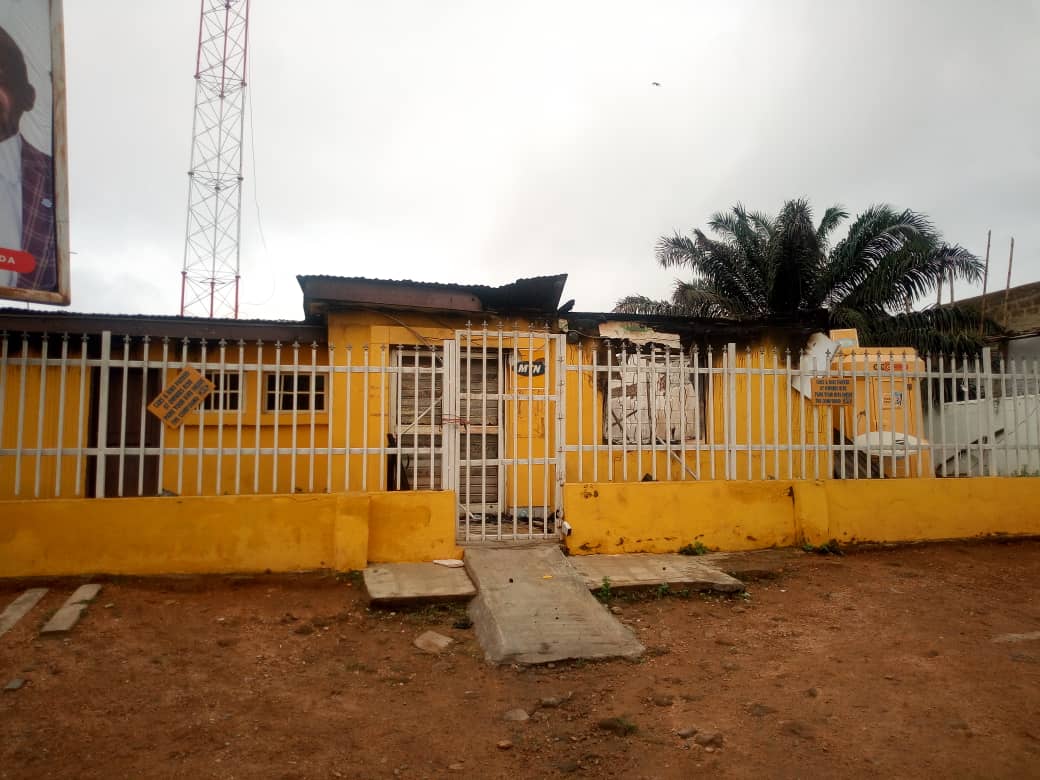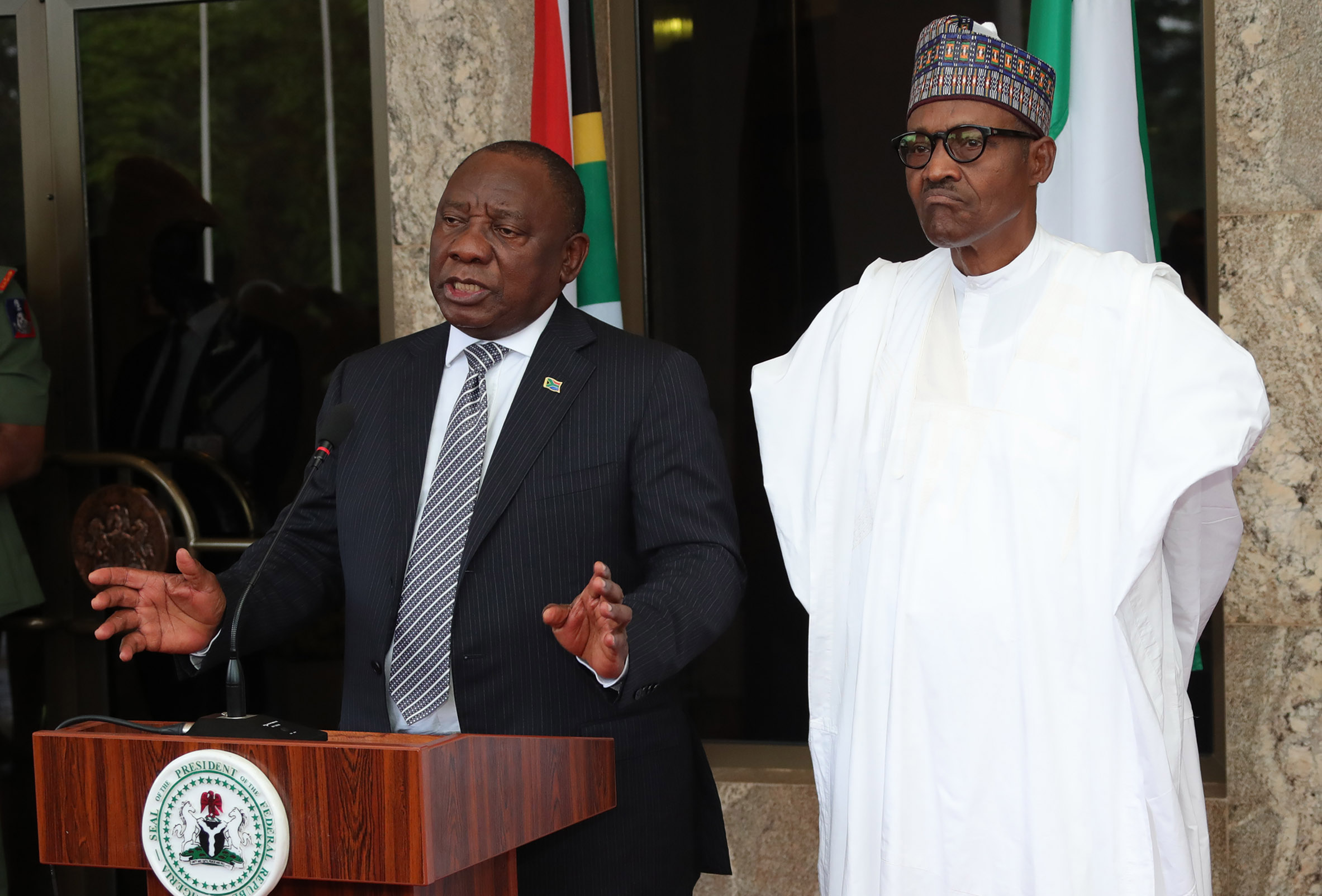All things being equal the prospect in 2023 is that a person from the southwest will emerge from the ruling All Progressive Congress (APC) as candidate to succeed President Muhammadu Buhari as President of the Federal Republic of Nigeria.The southwest will expect that in keeping with the political alliance with the north, the latter will support and vote a candidate from the zone in the 2023 elections.
The opposition Peoples Democratic Party (PDP) does not have such a straightforward choice. If the party fields a southwesterner, it will have to compete for the votes of that zone with the APC candidate which will definitely reduce its votes haul. It cannot field a candidate from the south south either because the area had already had its turn under Goodluck Jonathan. One could argue that faced with an APC candidate from the southwest, the PDP would want to strategically opt for a repeat of its 2019 North/Southeast ticket in order to woo the votes from the north in the hope that the millionaire votes of the area would go in solidarity with the northern candidate it hopes to field. But can lightning strike twice in the same place? Will the southeast agree to that having made it clear to all and sundry that in 2023 it should be the turn of the area to exclusively occupy the presidency? Against the background of divergent calls from the southeast for secession and referendum on its continued stay in Nigeria, the PDP will face a difficult dilemma: to accede to the demands to field a presidential candidate from the southeast and risk not getting the votes of the rest of Nigeria. Or ignore the southeast and risk losing both the support of the area and its votes.
Realistically however, the southwest’s quest is fraught with unknown unknowns for two broad reasons. First anyone from the southwest expecting president Buhari’s ‘’anointing’’ in 2023 should perish the idea. Going by antecedents, the president would rather ask anybody interested to go and test their popularity within the party. President Buhari will certainly not intervene in the party processes on behalf of any candidate. He will instead tell those interested in succeeding him to follow his example by going to the rank and file of both the party and the country in keeping with the tenets of democracy.
Secondly, while the southwest will expect support and votes from the north for aligning with the latter during the 2015 and 2019 elections, it will by no means be a dead cert. Senator Rufai Hanga one of the APC stalwarts from Kano who is known to be close to the president has come out to say that the north will support a candidate from the southwest to succeed president Buhari. His reason is that a southwesterner will replicate the kind of development and progress that has taken place in the southwest in the north. This reason to be sure does not in itself reflect whether there is a ground swell of support to the idea in the north or not.
Advertisement
But another member of the APC from Kano Ibrahim Boyidoes not share Senator Hanga’s view. To him, democracy being a game of numbers, the electorate both in the party and the country at large should be left to decide who leads them. He reckons that Senator Hanga’s opinions to which he is entitled should not be adopted as the party’s position.
But the more poignant views about the issue of whether the north will support a candidate from the southwestor not in 2023 came from a very highly placed, national member of the APC. He opened our discussion with a saying in the Hausa language, ‘’Bikinmagaji, bayahananamagajiya’’ meaning in the context of our discussion that the southwest’s interest in contesting the 2023 presidential elections, should not preclude candidates from other zones notably the north. In his characteristic bluntness he said, if there is a discerning scepticism in the north about supporting power shift to the southwest, it had to do with the political experience of the former against the latter. Going down memory lane he reeled out what he termed the southwest’s acts of political bad faith against the north. During the June 12 elections, he said the north gave late Chief M.K.O Abiola the votes that enabled him win the elections against its own son Bashir Tofa. But no sooner had the election appeared going the way of the late Chief did the southwesterners begin to give indication that they would use the power coming to them to checkmate the north. This much was evident during the struggles to de-annul the June 12 elections when southwesterners exclusively fenced off northerners in the campaign entourage of Chief Abiola.
Similarly with the coming of democracy in 1999 he went on, northerners sprung OlusegunObasanjo from jail and railroaded him straight to the presidency with little contribution from him. But throughout his tenure President Obasanjo sought to deliberately cut down the north to size. Even under the present dispensation of president Buhari despite all the prominent appointments given to southwesterners, most of the strident critics of president Buhari and the north are from the area. He said that unlike on the two occasions when the north voted overwhelmingly for both Chief Abiola and Obasanjo, the southwest even with the recognition given them by president Buhari and despite being nominally in alliance with the north in the APC, has on the 2015 and 2019 elections not turned out commensurate votes to appreciate and reciprocate president Buhari. Against this background, he said many of his colleagues believe that the southwesterners were just biding their time wait for when power comesto them to strike against the north.
Advertisement
In the north in view of the fact that president Buhari will not be on the 2023 ballot, in growing numbers across the spectrum, there is a growing preference for moving enmasse out of the APC to either another existing party or a new one. In this regard, to many in the north, the support and loyalty shown to APC was due to their trust in president Buhari alone who has earned this through his proven integrity and dogged political odyssey. No one they reckoned, has done near enough in the APC to be deserving of an automatic transfer of such loyalty and support. There is a distinct chance therefore that by 2023 the APC will either go into extinction in the most extreme of possibilities or be reduced to a shell of itself.
In the quest for the presidency after president Buhari in 2023, the southwest will do well to come to terms with the growing political undercurrent in the north. The north has always known that it has the numbers to change the political game in the country. And on three occasions with the election of Chief Abiola in 1993, Chief Obasanjo in 1999 and Goodluck Jonathan in 2011, the north had bowed to the pressures of political correctness in using its numbers to concede the presidency. In Chief Abiola’s case it was to bow to the strident, almost deafening demands for rotation of powerto the south; in 1999 with Obasanjo it was to appease and make amends for the annulment of June 12, 1993 elections and with Goodluck Jonathan in 2011, it was in recognition of the Niger Delta agitations for resource control. The north now feels it is done with appeasement especially considering the fact that on all the three occasions it subdued its political interest to concede power for the greater good of the nation, it was made to regret its magnanimity in exhibiting this act of political correctness.
In 2023 the political turf will most likely be defined not by a sense of political entitlement but by the political merit of political parties and their candidates standing for elective positions across the political chessboard.
Advertisement
08035355706 (sms only)
Views expressed by contributors are strictly personal and not of TheCable.

